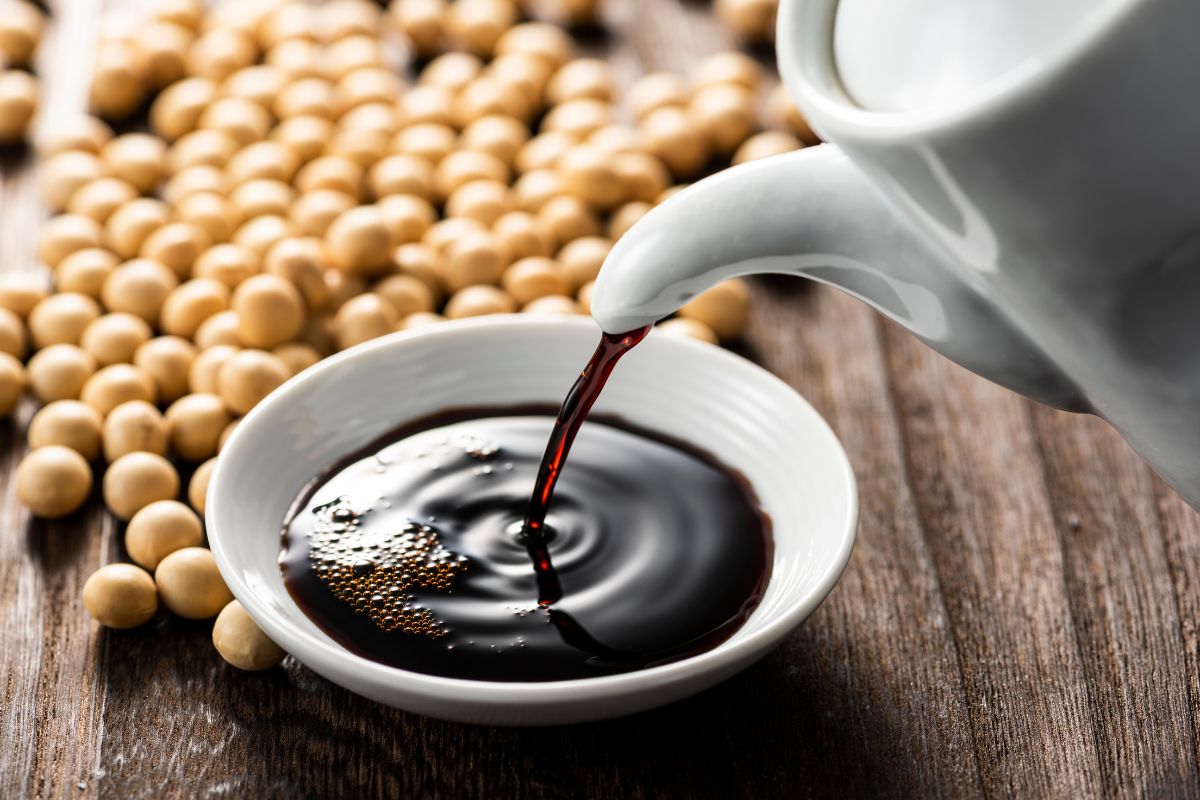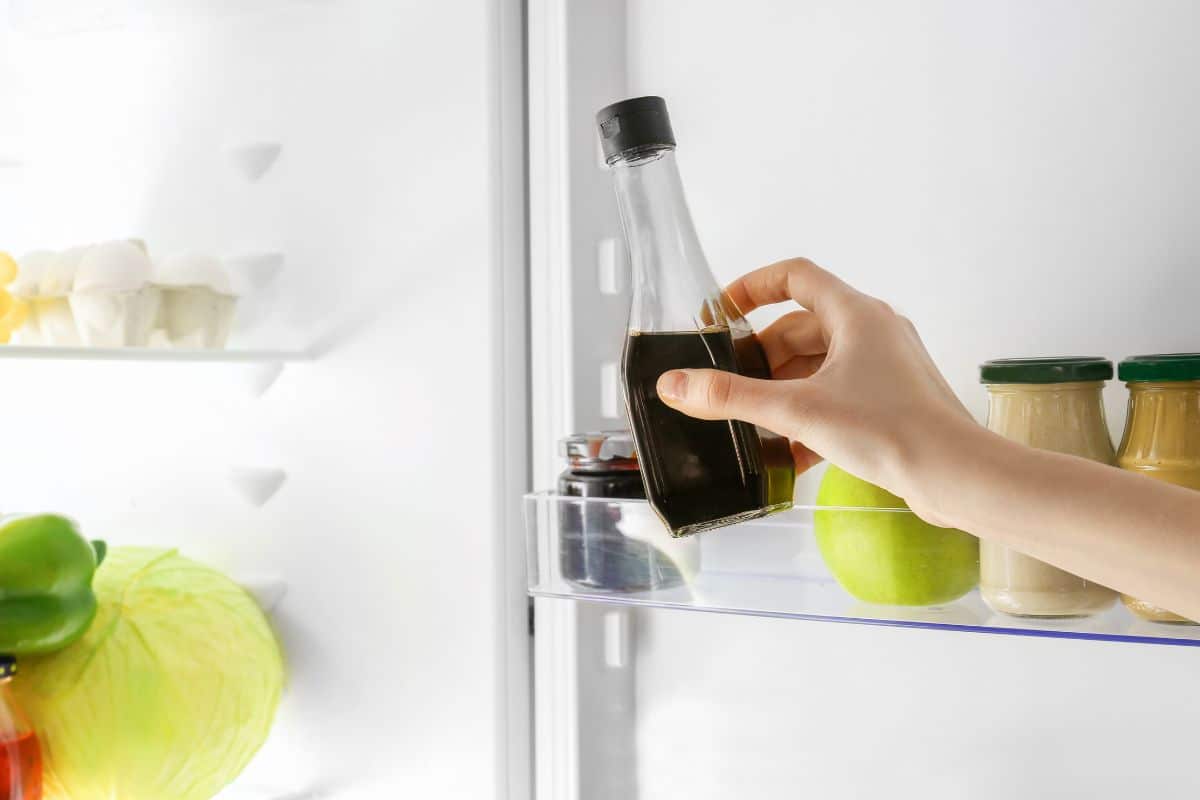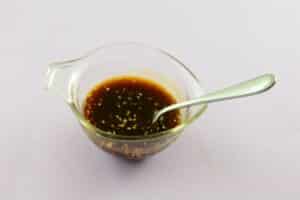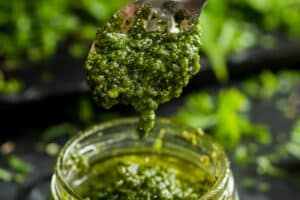Soy sauce is a common condiment that most people will have in their homes. The question is, how long does soy sauce last, and can it go bad?
If you have an opened bottle of soy sauce that you have not used in months, it can make you wonder if it is safe to use.

Alternatively, it might just be eternally good and never spoil. A lot of the labels do not say anything about how to store soy sauce or how long it will stay good.
If you are wondering if soy sauce can go bad, what the signs are, and how to store this delicious salty condiment, this article will suit your needs.
In this article, we are going to guide you through shelf life tips, storage, and how to tell if your soy sauce has gone bad.
So, without further ado, let’s dive right in and get started!
Does Soy Sauce Spoil?
If you have ever used soy sauce, you will know that it very rarely spoils. However, it does not retain its quality if it is left for a long time either.
If a bottle of soy sauce is left unopened, it might last a few years before it starts to spoil or lose flavor.
However, once a bottle is opened, it will only last a few months. This will especially be the case if you leave your soy sauce at room temperature.
On the other hand, an opened bottle of soy sauce may last six months if you leave it in the refrigerator.
But, just because your soy sauce has reached its expiration date does not mean that it has gone bad. It often means that the flavor is a little worse than if it were eaten fresh.
In essence, this means that if you are opening a bottle of soy sauce that has been in your cupboard for a while, it will be a good idea to check it.
It may just have a less strong taste, or it may have spoiled.
As long as there is no water or foreign substance introduced to your soy sauce, it should not spoil.
Make sure to keep the bottle tightly closed, this will prevent the soy sauce from spoiling.
However, you might spot little white floaters in your soy sauce at some point. They look a little like little white flecks of yeast.
But despite their somewhat moldy look, these flecks do not actually spoil your soy sauce.
The white specks you see floating in your soy sauce are essentially a type of yeast that thrives in environments that are very salty.
This yeast is often referred to as a film yeast, and it is absolutely not moldy.
When this yeast develops on your soy sauce, it does not cause it to spoil, nor does it result in something as awful as food poisoning.
However, this yeast might upset the flavor and smell of your soy sauce.
If you have found this film yeast in your soy sauce, there are a few things that you need to do to remedy the situation.
Firstly, you should use a coffee filter to filter out the yeast. Once the film yeast is gone, taste your soy sauce.
If it still has a decent flavor, you can keep using it as you normally would.
What Are the Signs Your Soy Sauce Has Spoiled?
So what happens if your soy sauce has actually gone bad? Well, there are telltale signs that indicate whether your soy sauce has actually spoiled.
The most reliable sign is the smell. For one, if your soy sauce has a very strong scent, or it just does not smell like soy sauce anymore, it might have spoiled.
Another sign your soy sauce has gone bad is the color and texture.
As we have said, mold or yeast can develop on top of your soy sauce. While the yeast can be safe, it must still be removed before consumption.
But did you know that mold can form on the surface of your sauce? Well, it can!
If your soy sauce both looks and smells the same as usual, then the next step is to find out if the taste is still okay.
You can tell if the soy sauce will be less flavorful if the color changes. For example, it will be darker in appearance while the taste will become milder.
That being said, if the soy sauce is weaker in flavor, you can always add more soy sauce to your dish.
This should counter the weaker soy sauce you have on hand.
However, if you have found that your soy sauce has an unpleasant taste, or it is simply too plain, it might be time to toss out your sauce.
If you are not sure if your soy sauce will still be safe to consume, it is better to be safe than sorry.
Throw out your soy sauce if it is suspicious. This is especially important if you have improperly stored your soy sauce.
Is It A Good Idea To Refrigerate Your Soy Sauce?

It is not essential to refrigerate soy sauce, but it can be beneficial. Especially if you have an already opened bottle of soy sauce.
It will last significantly longer if you keep it in the refrigerator. What we have found is that if you use soy sauce often, it doesn’t really matter.
But, if you cook with soy sauce infrequently, it might be a good idea to store it in the refrigerator.
It is entirely up to you if you want to refrigerate your soy sauce, not doing so will not result in bad things happening to your sauce.
More often than not, soy sauce will be just fine if you leave it in your cupboard.
The worst-case scenario is that your sauce might deteriorate and lose its flavor. If this happens, it is super easy to head to the store and buy a new bottle.
What Is The Best Way To Store Soy Sauce?
If you have opened your bottle of soy sauce, the best thing you can do is store it in a cool yet dry place.
We recommend a shelf in your pantry or your kitchen cupboard.
Regardless of whether you are storing your soy sauce in the refrigerator or in the kitchen cupboard, it is essential that the lid stays on the bottle.
One way to spoil a bottle of soy sauce is to allow air or foreign bodies to get into the sauce. As such, it needs to remain tightly sealed when it is not in use.
If you want to keep your soy sauce at room temperature, we recommend that you decant it into another container.
This can help keep your soy sauce from losing its flavor and quality.
What you can do is keep your bottle of soy sauce in the fridge and decant a little into a small bottle.
This should keep the majority of your soy sauce from losing its flavor while keeping a small amount of it at room temperature.
If this seems like a bit of a hassle for you, it might be a good idea to keep your soy sauce in the refrigerator permanently.
If you want to use room-temperature sauce for your meals, you can always take out a few tablespoons a few minutes before you start cooking.
How Long Does Soy Sauce Last?
If you have an unopened bottle of soy sauce, it can last you more than two years past its expiration date.
That number significantly drops once your bottle has been opened. At this point, it will stay good for about a month if you store it at room temperature.
But, this number can be increased to about six months if you store your opened soy sauce in the refrigerator.
It is also important to note that the expiration date on your bottle of soy sauce is only a guideline.
Soy sauce does not go bad easily. As such, it is a good idea to check your soy sauce if you suspect that it has gone bad.
The smell, flavor, and color can tell you everything you need to know about whether it has gone bad or not.
It is also worth mentioning that these rules can be applied to other soy sauce based condiments such as teriyaki or other fermented sauces like miso paste or fish sauce.
The amount of time your soy sauce lasts is not always set in stone. It may go off sooner or later, depending on how you store it and a slew of other factors.
So, as we have said, a bottle of soy sauce that has already been opened will last about one month in a cupboard and six months in the refrigerator.
An unopened bottle can last between one and two years past the best-by date, regardless of whether it is stored in the pantry or in the refrigerator.
Final Thoughts
We hope that you have enjoyed reading this article and learning about whether soy sauce can go bad.
You will have learned by this point, it is a good idea to refrigerate your soy sauce as it will last longer and retain its flavor.
While soy sauce can go bad, this very rarely happens. At most, it may lose its signature flavor after a few months. But when mold develops, that is when it can go bad.
If you have enjoyed this article, we hope that you will take a moment to check out some of our other articles.
Our site is full of phenomenal food-related content. There is sure to be something there that will pique your interest.
So, take a moment to peruse our articles if you have the time.
Thanks for reading!







